How To Stop Your Puppy From Biting: A Comprehensive Guide
Welcoming a new puppy into your home is an exciting and joyous experience. However, along with the fun and cuddles, you might also face some challenges, such as your puppy’s biting behavior.
While biting is a natural part of a puppy’s development, it’s crucial to address this behavior early on to ensure it doesn’t become a problem as they grow.
Here’s a comprehensive guide on how to stop your puppy from biting, filled with practical tips and techniques.
Understanding Why Puppies Bite
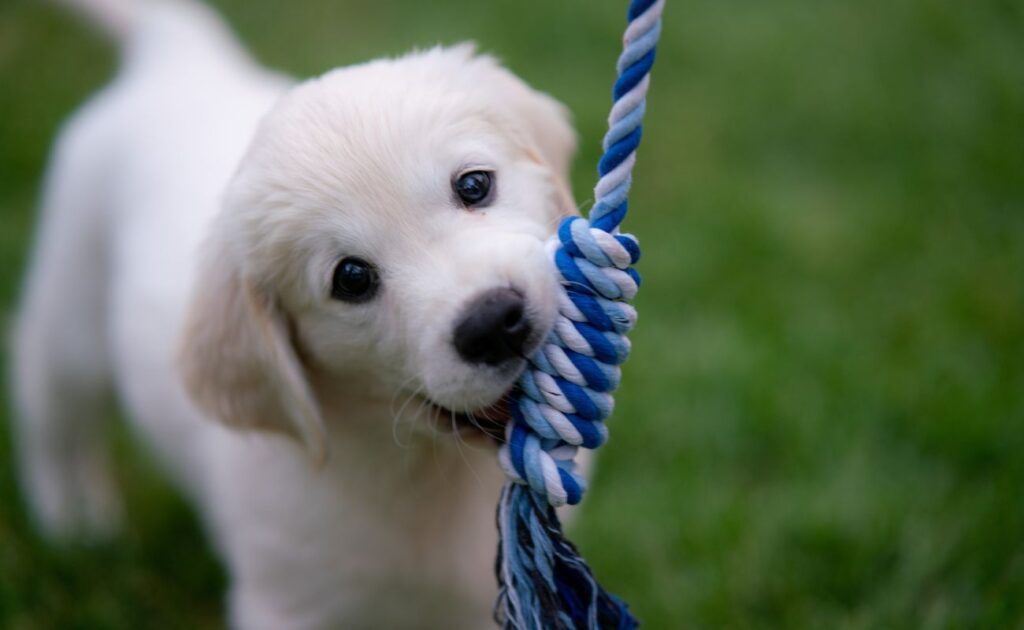
Before diving into the methods to stop your puppy from biting, it’s essential to understand why they bite. Puppies bite for various reasons, including:
- Teething: Puppies go through a teething phase where they experience discomfort, leading them to chew on anything they can find.
- Exploration: Puppies explore the world with their mouths, and biting is a way for them to learn about their environment.
- Play: Biting during play is a common behavior in puppies, especially if they were used to playing with their littermates this way.
- Attention Seeking: Sometimes, puppies bite to get your attention, especially if they want to play or need something.
- Defensive Behavior: If a puppy feels threatened or scared, they may bite as a defensive reaction.
Understanding the root cause of the biting behavior is the first step in addressing it effectively.
🍲 50 Printable Dog Food Recipes Your Pup Will Love
Skip the fillers and preservatives. Make healthy, homemade meals your dog will actually eat — using everyday ingredients you already trust. Vet-friendly, budget-friendly, and super easy to follow. 🐾
Perfect for picky eaters, senior dogs, and pups with sensitive stomachs. Make mealtime simple and nutritious again.
Get the Recipes Now 🐶Effective Techniques to Stop Your Puppy from Biting
Consistent Training
Consistency is crucial when training your puppy to stop biting. If you want to curb this behavior, you need to be consistent in your responses and commands.
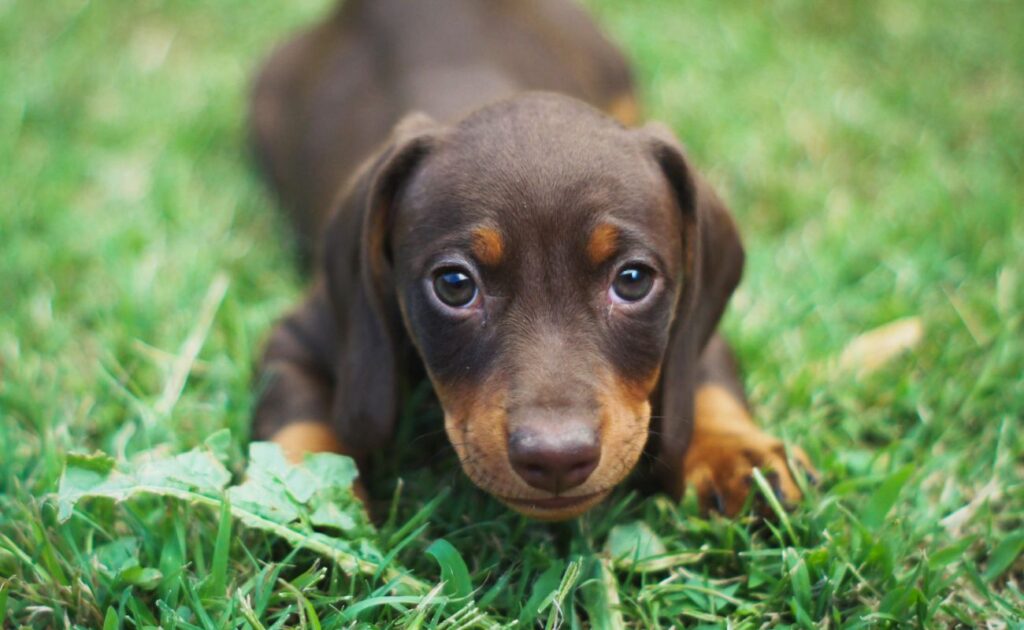
Start by teaching your puppy basic commands like “no bite” or “gentle.” When your puppy starts biting, say the command in a firm, calm voice.
Be patient and give your puppy time to understand and follow the command. When they obey, reward your puppy with treats or praise. Positive reinforcement encourages them to repeat the behavior. Over time, your puppy will learn that being gentle brings rewards, while biting does not.
Redirect Biting Behavior
Redirecting your puppy’s biting behavior to appropriate items can be highly effective. Provide chew toys and encourage your puppy to chew on them instead of your hands or furniture. When your puppy bites, immediately offer them a chew toy. This teaches them what is acceptable to bite and chew on.
There are various chew toys available, including rubber toys, rope toys, and edible chews. Choose toys that are safe and appropriate for your puppy’s age and size.
Socialization
Socializing your puppy helps them learn appropriate behavior from other dogs and people. Enroll your puppy in a puppy socialization class or arrange playdates with other puppies. Socialization teaches puppies how to interact appropriately and reduces biting behavior.
During playdates, supervise your puppy and intervene if play becomes too rough. Teach them to play gently by rewarding calm and gentle interactions.
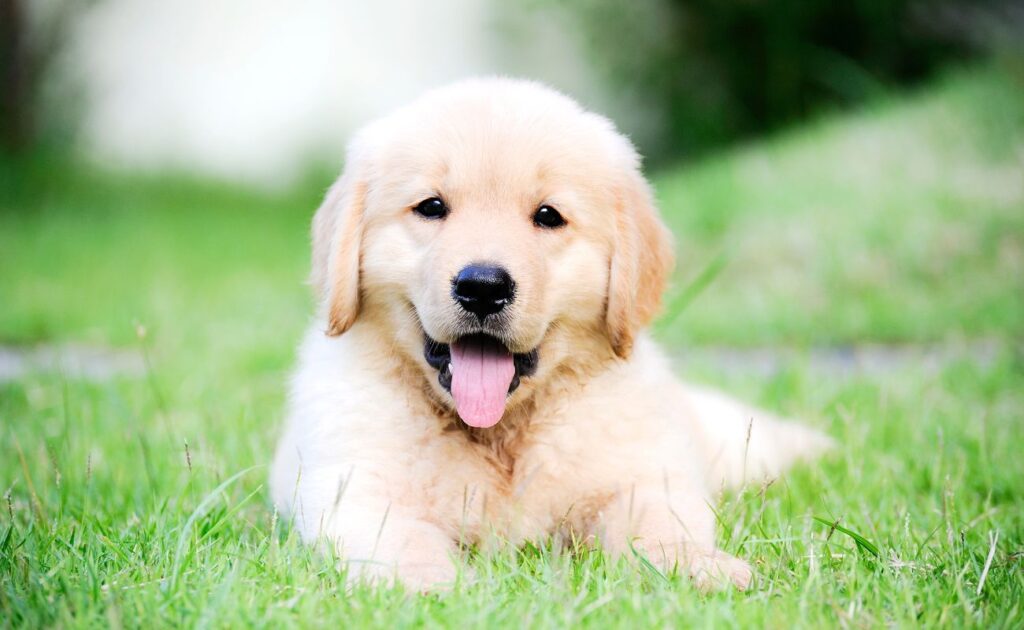
Use Positive Reinforcement
Positive reinforcement is one of the most effective ways to train your puppy. Reward your puppy for good behavior with treats, praise, or playtime. When your puppy plays gently or stops biting on command, immediately reward them. This reinforces the idea that good behavior is rewarded.
Avoid using physical punishment or yelling, as this can lead to fear and anxiety, making the biting behavior worse. Focus on positive reinforcement to encourage desired behaviors.
Create a Calm Environment
Creating a calm environment can help reduce your puppy’s biting behavior. Puppies are more likely to bite when they are overstimulated or anxious. Keep the household noise levels down, especially during the initial stages of training. Use calming music or white noise to create a soothing atmosphere.
Ensure your puppy has a quiet and comfortable space where they can retreat and relax. A cozy bed in a low-traffic area of your home can provide them with a sense of security and reduce stress-induced biting.
Teach Bite Inhibition
Teaching bite inhibition is crucial for puppies to learn how to control the force of their bites. If your puppy bites too hard during play, let out a high-pitched yelp or say “ouch” loudly. This mimics the reaction of their littermates and signals that the bite was too hard. Immediately stop playing and ignore your puppy for a few seconds.
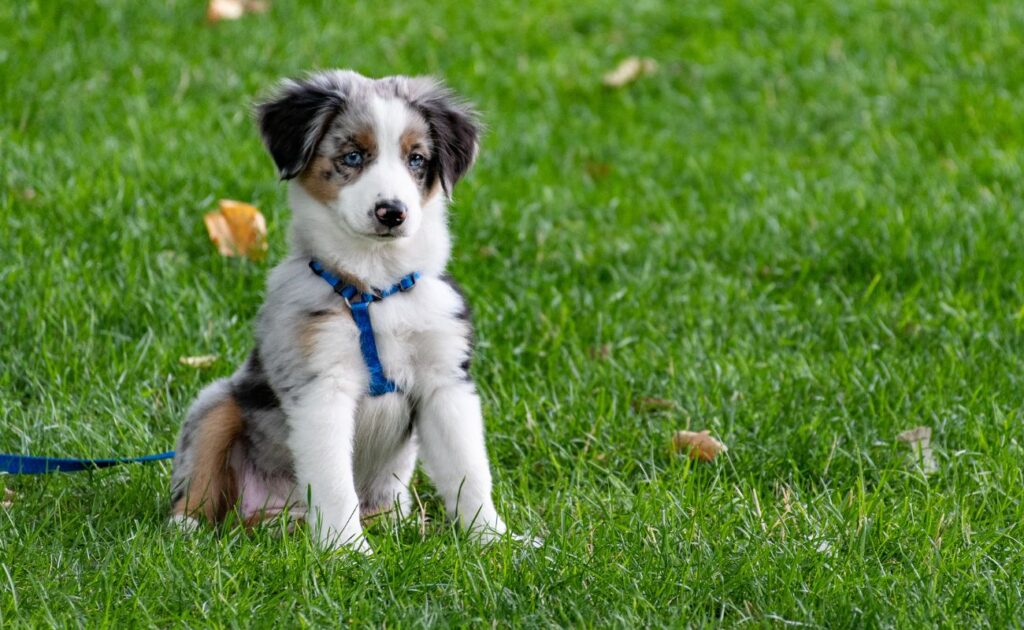
Resume play after a brief pause, rewarding your puppy for gentle play. Repeat this process consistently until your puppy learns to control the force of their bites.
Provide Plenty of Exercise and Mental Stimulation
A tired puppy is less likely to bite out of boredom or excess energy. Ensure your puppy gets enough physical activity each day. Regular walks, playtime, and outdoor adventures can help burn off energy. Additionally, provide toys that stimulate their mind, like puzzle toys or treat-dispensing toys, to keep them engaged when you’re not around.
Interactive toys that challenge your puppy mentally can significantly reduce boredom-induced biting. Rotate the toys to keep things interesting and maintain your puppy’s engagement.
Avoid Encouraging Rough Play
Avoid encouraging rough play that involves your hands, feet, or clothing. Rough play can confuse your puppy and make them think biting is acceptable behavior. Stick to using toys for playtime and discourage any biting or mouthing during interactions.
If your puppy becomes too rough during play, stop the game and ignore them for a few moments. This teaches them that rough play results in the end of fun.
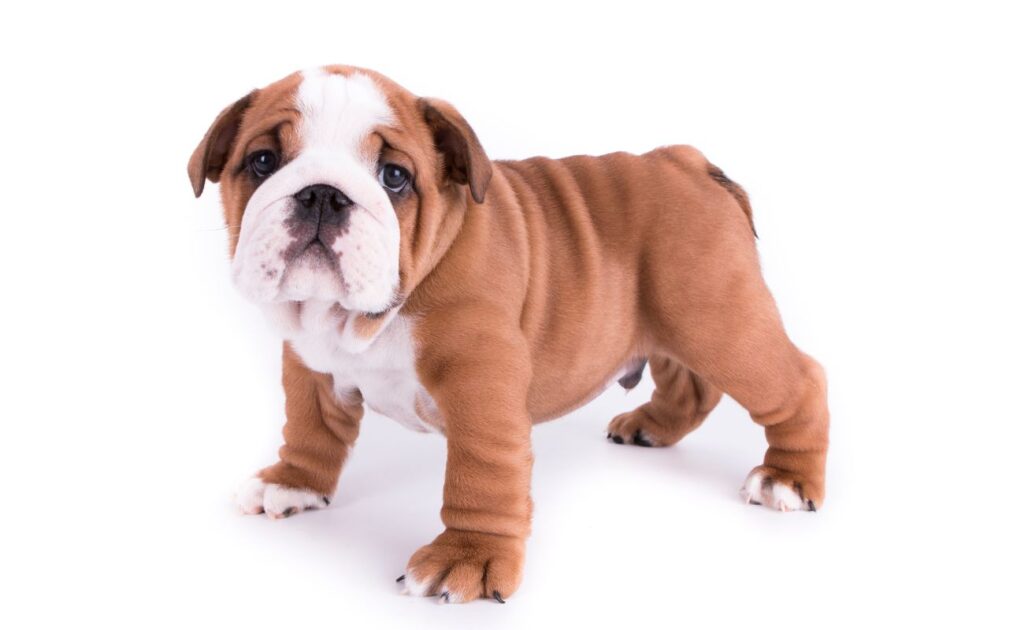
Seek Professional Help
If your puppy’s biting persists despite your efforts, consider seeking help from a professional dog trainer or behaviorist. A professional can provide personalized guidance and develop a training plan tailored to your puppy’s specific needs.
FAQ
Q: Why does my puppy bite so much?
A: Puppies bite for various reasons, including teething, exploration, play, attention seeking, and defensive behavior. Understanding the root cause of the biting is essential to address it effectively.
Q: How can I teach my puppy to stop biting on command?
A: Consistent training is key. Use commands like “no bite” or “gentle” in a firm, calm voice when your puppy bites. Reward them with treats or praise when they stop biting. Positive reinforcement encourages them to repeat the desired behavior.
Q: What should I do if my puppy bites during play?
A: If your puppy bites too hard during play, let out a high-pitched yelp or say “ouch” loudly, then stop playing and ignore them for a few seconds. This teaches them that biting too hard results in the end of fun. Resume play and reward gentle behavior.
Q: Are there specific toys that can help reduce biting?
A: Yes, providing appropriate chew toys can redirect your puppy’s biting behavior. Choose durable toys like rubber chew toys, rope toys, and treat-dispensing toys to keep them engaged and help with teething discomfort.
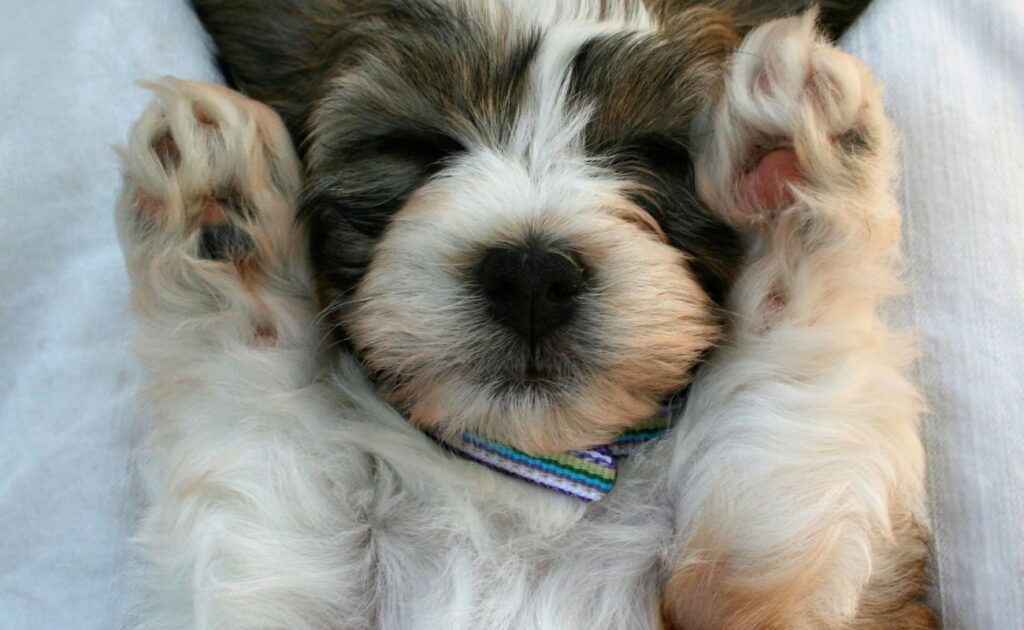
Q: How can I create a calm environment for my puppy?
A: Keep household noise levels down, especially during training. Use calming music or white noise to create a soothing atmosphere. Ensure your puppy has a quiet and comfortable space to retreat and relax.
Q: Can socialization help reduce my puppy’s biting?
A: Yes, socializing your puppy with other dogs and people helps them learn appropriate behavior and reduces biting. Enroll in puppy socialization classes or arrange playdates with other puppies to teach gentle play.
Q: When should I seek professional help for my puppy’s biting?
A: If your puppy’s biting persists despite your efforts, consider seeking help from a professional dog trainer or behaviorist. They can provide personalized guidance and develop a tailored training plan for your puppy.
Q: How much exercise does my puppy need to reduce biting?
A: The amount of exercise depends on your puppy’s breed, age, and energy level. Generally, puppies need at least 30 minutes to 2 hours of physical activity daily. Regular walks, playtime, and outdoor adventures help burn off excess energy and reduce biting.
Q: Is it normal for puppies to bite when they are teething?
A: Yes, teething puppies often bite to relieve discomfort. Provide appropriate chew toys and be patient as they go through this phase. Redirect biting to toys and avoid using hands or feet for play.
Final Thoughts
Stopping your puppy from biting requires patience, consistency, and understanding. By addressing the root causes of the biting and using positive reinforcement techniques, you can help your puppy develop better habits. Remember, biting is a natural behavior for puppies, so the goal isn’t to eliminate it entirely but to manage it appropriately.

With time and effort, your puppy can learn to bite less and enjoy a calmer, more peaceful environment. Whether it’s through consistent training, providing adequate exercise, or creating a calm home environment, there are many strategies you can employ to reduce your puppy’s biting. Don’t hesitate to seek professional help if needed, and always prioritize your puppy’s well-being and happiness.
By following these guidelines, you can enjoy a more harmonious home and a well-behaved, happy puppy. Happy training!
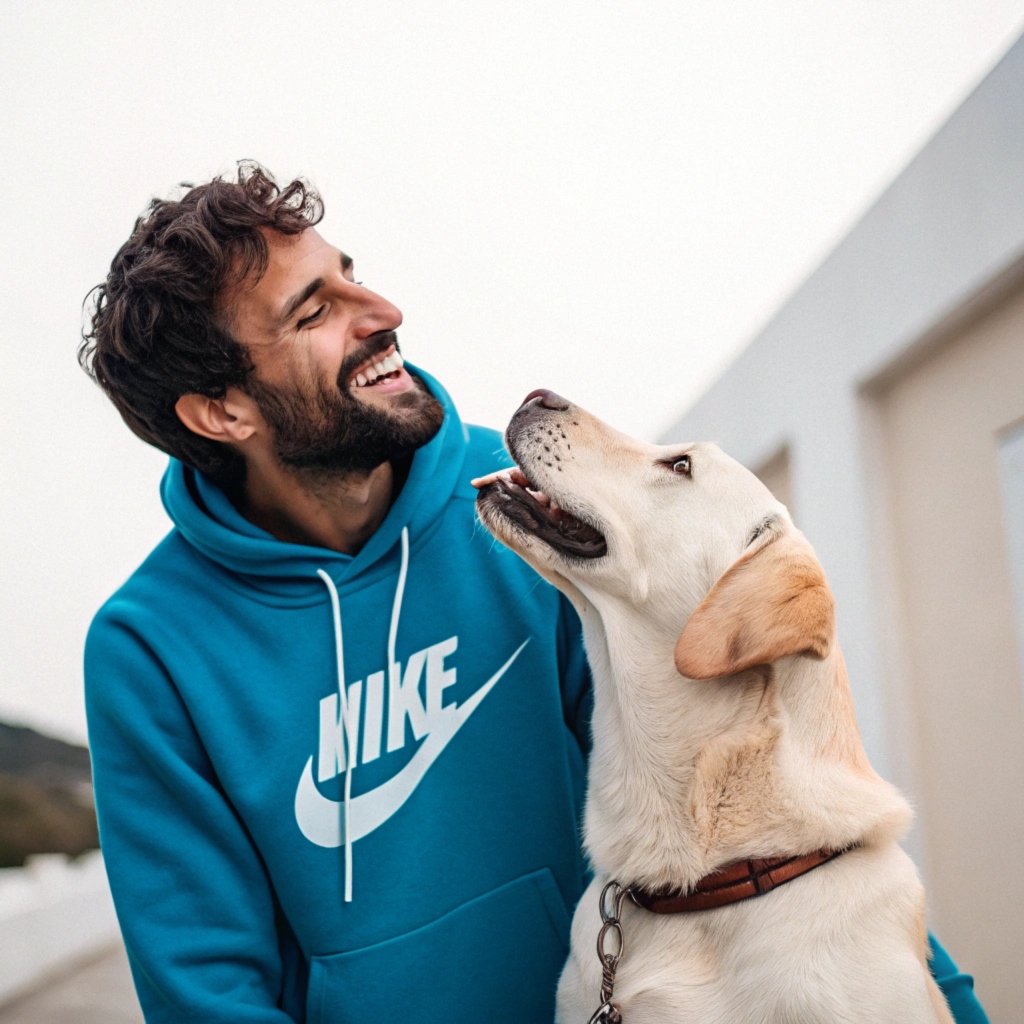
I’ve spent 10+ years in dog training, digging into what makes dogs (and their humans) tick. At Smart Dog Learning, I share my no-nonsense, fun approach to training so you can enjoy life with a well-behaved, happy pup—no boring lectures, just practical results 😉





